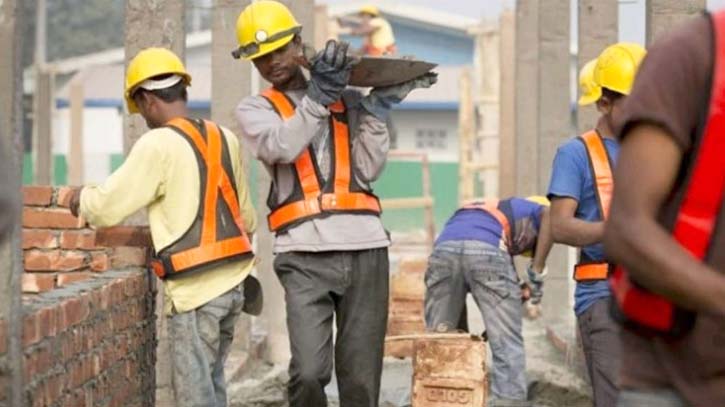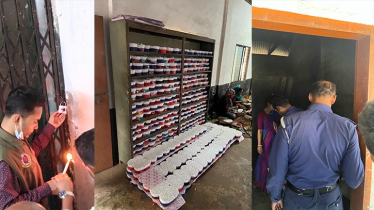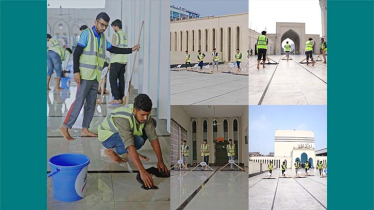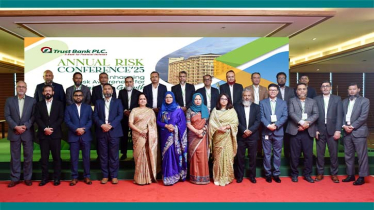
Photo: Messenger
Every year, thousands of Bangladeshi workers leave their homes with dreams of a better future abroad. But for many, the journey doesn’t unfold as they hoped. A significant challenge they face is the lack of technical skills, which hampers their ability to thrive in the international job market.
Rafiq, a 30-year-old from Noakhali moved to Saudi Arabia as a construction worker, hoping to provide a better life for his family. But reality hit hard. His lack of technical skills left him earning less than his peers from other countries. “While we were doing the same job, my coworkers earned almost double my salary. Unlike them, I was unfamiliar with most of the machinery operations used at my construction site”, Rafiq said while sharing the challenges he faced abroad due to lack of technical skill.
Salma, a 28-year-old woman from Barisal, left her home behind to work as a housekeeper in Malaysia. “When I started, I struggled to meet the expectations of my employers. They expected me to manage modern appliances, but I had never used anything like them back home,” Salma shared. Her lack of training in household technologies left her feeling inadequate. While other housekeepers from countries like the Philippines earned higher wages due to their advanced training and communication skills, Salma found herself stuck with a lower salary.
Like Rafiq and Salma, Rony, a 26-year-old from Dhaka, has also experienced hard time at work due to technical skill issues. Soon after he started working as a Shop Supervisor in in UAE, he realized he wasn’t prepared for the high standards expected at the shop. “My coworkers from Pakistan and India were completing tasks twice as fast as I could. They knew how to communicate, manage sales, maintain store and handle cashes smartly using technology, while I had to rely on manual methods,” Rony explained.
These stories reflect the struggles of thousands of Bangladeshi workers abroad. Each year, many face job failures, salary discrimination, and even deportations due to lack of technical skills. Bangladesh is one of the largest exporters of labor globally, but skill gaps remain a major obstacle. Yet many migrants leave without the training needed for international standards.
Enhancing the skills of Bangladeshi migrant workers can significantly increase remittance inflows by enabling them to secure better-paying jobs abroad. As per the World Migration Report 2024 by the International Organization for Migration (IOM) and IOM data from 2019 shows that skilled workers earn higher wages—while Bangladeshi workers currently earn an average of $203.33 per month, Filipino workers earn $564.1, Indian workers earn $395.71, Pakistani workers earn $275.74, and Chinese workers earn $532.71 per month. Additionally, 60% of Bangladeshi migrants take on low-skilled jobs, contributing to lower wages compared to workers from other countries who secure better-paying opportunities due to their skillsets. By prioritizing skill development programs, Bangladesh can improve workers' employability, leading to higher wages and increased remittances, which are essential for strengthening the national economy.
Ami Probashi, world’s first digital startup for migration solutions, has been contributing to the creation of skilled manpower for Bangladesh’s migration sector since its inception through providing skill development support for aspiring migrators. They have facilitated training enrollment for more than 3.5 lakh aspiring migrants, including 1.1 lakh enrollments in 2024 alone.
Ami Probashi's founder and Managing Director, Mr. Tarique E. Haque, stated, "The migration sector has always been a key driver of foreign income for Bangladesh. According to Bangladesh Bank data, in November alone, we earned $2.19 billion through remittances, reflecting a 13.47% year-on-year growth. If we can increase the number of skilled expatriates, this figure could easily double, or even exceed that, in the near future. Since our establishment, Ami Probashi has been committed to this vision. Our platform continuously connects migrants with a wide range of training programs, aiming to bridge skill gaps and ensure better job opportunities and higher salaries abroad."
This commitment to skill development is reflected in the training enrollment numbers of aspiring migrants using Ami Probashi Platform, as highlighted in Ami Probashi’s Annual Report 2024. Driving, computer operations, and housekeeping seemed to be the most desired training courses for aspiring migrants. According to the report, 17,799 Bangladeshis had enrolled in driving courses at various technical training institutes nationwide through Ami Probashi platform in 2024. Other notable enrollments included 16,732 in computer operations and 9,323 in housekeeping. Female aspiring migrants were the majority in housekeeping courses, with 8,698 enrollments.
Messenger/Tushar








